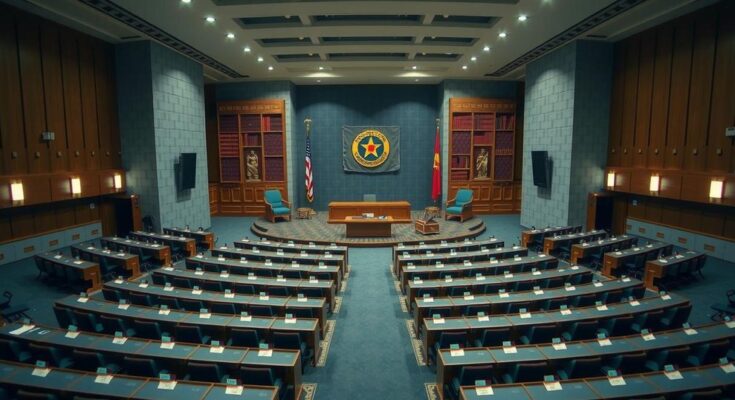The North Korean Human Rights Act, marking 20 years since its enactment, remains lapsed, denying essential protections to North Koreans amidst an escalating human rights crisis. The act established a Special Envoy for human rights and facilitated refugee resettlement. Without reauthorization, pressing issues of ongoing persecution and potential genocide, especially against Christians, remain unaddressed.
October 18 marked the two-decade anniversary of the North Korean Human Rights Act (NKHRA), a pivotal law showcasing the U.S. commitment to stand up for North Koreans’ rights amidst oppression by the Kim regime. However, as the anniversary passes, the NKHRA remains lapsed, absent from the National Defense Authorization Act, jeopardizing crucial protections for the North Korean populace in light of their dire human rights situation. Originating in 2004, the NKHRA established the position of Special Envoy for North Korean Human Rights Issues, emphasizing human rights in U.S. diplomatic efforts. It also facilitated pathways for North Korean refugees to resettle in the U.S. and provided vital funding to enhance information access within North Korea. The current reauthorization proposal focuses on family reunification and retains many important features from prior NKHRA extensions. The NKHRA lapsed in September 2022, and without renewal this year, it will not be reauthorized for three years. This void places North Korean citizens in peril, with the regime’s strict border closures during the pandemic exacerbating their suffering. The United Nations continues to document enduring human rights violations, with a significant report expected in September 2025, detailing the findings of the 2014 inquiry on crimes against humanity. As the legislative process unfolds, Senator Rand Paul holds up the NKHRA without clear reasoning. Despite attempts for clarity, no response has been received from his office. This lack of initiative in Congress may present an opening for decisive actions from the executive branch, emphasizing the moment’s urgency. To mark the NKHRA’s 20th anniversary, the Secretary of State should publicly declare whether North Koreans continue to experience crimes against humanity, potentially including genocide. Recent research indicates that specific groups, particularly North Korean Christians, might be enduring genocidal actions due to intense persecution by the regime, meeting criteria set by the United Nations for such grave allegations. An official atrocity determination could prompt congressional moves to reauthorize the NKHRA, reminiscent of how the Uyghur genocide acknowledgment spurred significant legislative responses. As the U.S. leadership faces this critical juncture, the pressing question lingers: Will they seize this moment to aid the beleaguered North Korean people?
The North Korean Human Rights Act (NKHRA), established two decades ago, symbolizes U.S. dedication to promoting human rights amidst oppressive state control in North Korea. Its current lapse halts crucial protections just as the dire human rights situation escalates, necessitating immediate response from U.S. authorities to renew support for the North Korean populace.
The NKHRA’s 20-year milestone highlights a critical need for renewed legislative leadership amidst ongoing human rights abuses in North Korea. The act’s expiration poses severe risks for North Korean citizens needing refuge and support. Urgent action is required from both Congress and the executive branch to address these issues and restore vital protections for a suffering population.
Original Source: www.hudson.org



